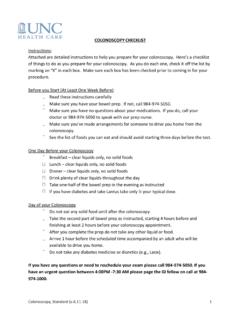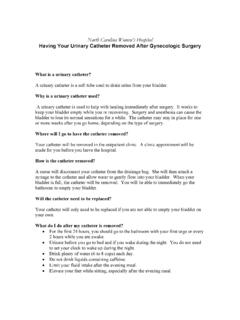Transcription of Education for Patient and Family What is aphasia
1 1 Education for Patient and Family What is aphasia ? aphasia is a language problem o Difficulty with speaking o Difficulty with understanding o Difficulty with reading o Difficulty with writing aphasia affects conversational interaction aphasia does not affect intelligence This document is converted to aphasia -friendly print. 2 aphasia does not change you: You can still have opinions You can still socialize You can still make your own decisions What causes aphasia ? Brain injuries can cause aphasia o Stroke o Head injuries: Car accidents, falls, trauma Other neurological diseases can cause aphasia o Dementia o Brain tumors This document is converted to aphasia -friendly print.
2 3 How common is aphasia ? About 1 million people in the have aphasia 1 in 250 people has aphasia What other problems could you have? 1. Dysarthria: o Weakness in the speech muscles o Reduced speech quality o Reduced intelligibility 2. Dysphagia: o Swallowing difficulty o Chewing difficulty This document is converted to aphasia -friendly print. 4 3. Changes in cognitive ability: o Difficult to concentrate or pay attention o Cannot remember new information o Difficulty with problem solving 4.
3 Apraxia: o Difficulty with carrying out voluntary speech or body movements 5. Perseveration: o Inappropriate repetitions of sounds, words, phrases or tasks This document is converted to aphasia -friendly print. 5 Where to find more information about aphasia ? Triangle aphasia Project (TAP) o Local support groups o (919) 484-7719 o American Speech-Language-Hearing Association (ASHA) o National aphasia Association (NAA) o This document is converted to aphasia -friendly print. 6 Communication Tips for Family and Caregivers Be a partner not a therapist Set the stage for effective communication: o Good lighting o Relaxed atmosphere Speak at a normal rate, pauses appropriately Don t use baby talk Write down key words to aid comprehension Provide choices Be willing to accept ANY form of communication.
4 O Speech o Gestures o Writing o Drawing o Using a communication notebook Sit down and have a pleasant conversation with your partner for at least once a day Adapted from.











